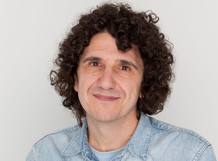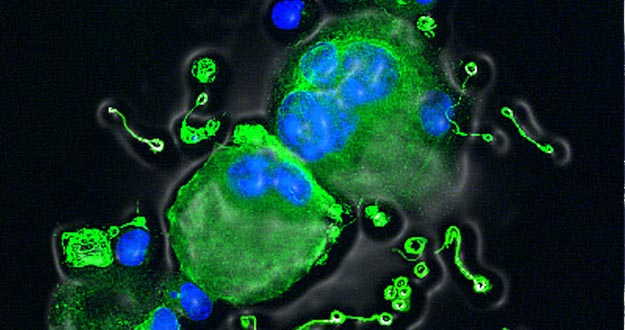Some few days ago, I could found a heartening news, for patients with low blood platelets: “It was discovered in Spain a new mechanism, able to form platelets in blood”.
A study by the National Cancer Research Centre (CNIO) has shown that cells, originating from platelets, the megakaryocytes, can be reprogrammed, artificially, to platelets and reconstitut their blood levels.
The results of the research, published by the Group Cell Division and Cancer of the CNIO, in the journal Developmental Cell, may help in the treatment of thrombocytopenia and promote the design of better therapeutic cancer treatments, as explained by the study director, Marcos Malumbres.

Marcos Malumbres
The Thrombocytopenia is a disease, characterized by a lower than normal platelet index, a tiny cells, involved in blood coagulation, has been reported, by the CNIO, in a note.
Patients with thrombocytopenia, often, suffer uncontrolled bleeding, that can lead to bruising and bleeding, and even death.
Platelets are produced, in a very peculiar way and rare in humans, even in other animal cells: megakaryocytes grow, during their development, until they become giant cells, later 'broken' and form tiny cells, that are platelets.
This impulse growth occurs through multiple rounds of replication of genetic material, cells resulting larger cells, in a number of complete sets of chromosomes, higher than the usual.
Thus, understanding how these cells are produced, in body, could be very useful to alleviate the disease, whose incidence increases, exponentially, in patients undergoing treatments, like chemotherapy. In the latter, such is the severity of the symptoms, that they may be grounds for termination of treatment.
Using genetically modified mice, the Malumbres group has explored cell growth agents, that orchestrate this process.
"While the elimination of the major proteins, that regulate growth of megakaryocytes, generated, as expected, a decreased platelet production, when we remove Cdk1 [a very important protein in the process] this does not happen", says Malumbres.

Two deficient megakaryocytes, from which emanates extensions, in which platelets are produced
To this, he added that "even in the absence of Cdk1, megakaryocytes are able to grow in size, similar to normal cells so".
Marianna Trakala, first author of the work, studied, using advanced techniques of videomicroscopy, how it could be that megakaryocytes increased in sized and they produced platelets.
"This analysis revealed that Cdk1 deficient cells, undergo cell reprogramming towards a process known as 'endociclos', which also occurs, in other cell types, such as cells of the placenta", explains Trakala.
Thus, endociclos allow increase in size megakaryocytes, as an alternative to the usual way. "This behavior is a result of the plasticity of cells, to respond to different situations of stress", he concluded.
The identification of this new route, to generate platelets, is not a simple scientific curiosity, but it could have medical applications.
"We, immediately, asked if reprogramming the cell cycle, towards endociclos, we could fix induced thrombocytopenia, in other models", says Malumbres.
For it, his group, in collaboration with groups of Juan Mendez, Sagrario Ortega and Mariano Barbacid, also from the CNIO, eliminated Cdk1, in mice, with severe thrombocytopenia. Removing Cdk1 was able to increase the number of platelets and reduce thrombocytopenia, in these animal models.
According to the authors of the study, the ability to reprogram these cells, may be useful, in various situations, where it is necessary to recover a thrombocytopenia.
The results, they predict, could also help "design better therapeutic cancer treatments, in describing the different requirements than normal or tumor cells have, towards cell cycle regulators".
"Cdk1 blocking or other cell cycle protein is lethal to tumor cells, but does not affect megakaryocytes, suggesting the potential use of inhibitors against these factors already available in various malignancies such as leukemias promegacariocíticas".
The work has been funded by the La Caixa Foundation, Fundación Ramón Areces, the Ministry of Economy and Finance, the Community of Madrid and the European Union.
Well, I hope this work can help many people.
Until my next post, kind regards,
Luis.
Sponsored by Costaluz Lawyers.
Please click below:
